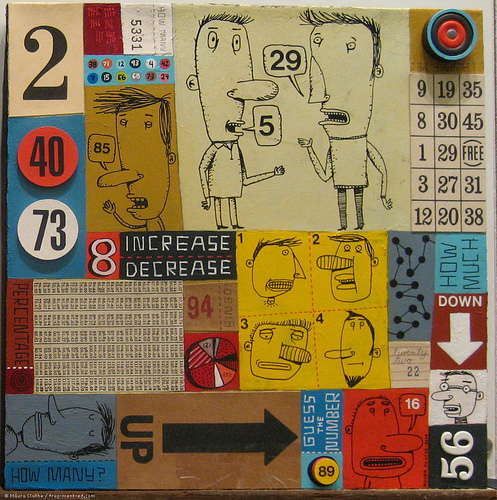Why you really need to be kind to children
We were visiting a prospective preparatory school for our three-year-old. The director gave us a tour around the campus and the various classrooms. We liked what we saw. The students looked like they were enjoying themselves and the general atmosphere was relaxed and comforting to a parent. All classrooms were installed with a smart board; all lessons were projected through a beamer , the screen doubles as an interactive whiteboard where the teacher can write explanations with a digital pen.
When the tour was over, we headed to the director’s office and she explained to us their classical teaching method. All students are treated equally. Students are not grouped according to their learning abilities. So all students stay together in one class. If a quick learner completes an activity ahead of others, then that student is given extra work to further his or her capabilities while others complete the given task. I liked what I heard.
What a stark contrast this was from the school I attended in my elementary years. I went to an exclusive Catholic school where all the “smart” students were grouped in one class and we were called the cream pod. The “average” learners were also put together in another section and the “slowest” learners in a different group.
If you were in the cream pod, there was extra pressure to perform your best. That pressure doubles if you were vying for the honor roll. Competition was fierce and emphasis was on an individually guided education. I was consistently in the top ten except for one tiny little problem. I was weak at math, according to my teachers. The highest mark was 95, passing mark was 75, if you were on the honor roll, you cannot have a grade lower than 85.
I was always hanging on at 85 in Mathematics, year after year. My other grades were above average, but it wasn’t good enough with a Math grade which pulled my general weighted average down. This was a constant dark cloud hovering over me. I almost peed at the very thought of another math exercise, every single time!
It didn’t help that my aunt smacked my palms with a ruler whenever I started counting with my fingers as I froze over flashcard exercises on multiplication and division tables while she was tutoring me.
It didn’t help that my grade 5 teacher pitted me against another student who was also labeled “weak in math” and declared us king and queen of the bottom ranks after every math contest in class. I wanted to bury my face in my palms and hide from the embarrassment over and over again.
It certainly didn’t help that my sister is a genius who was consistently at the top of her class and came home every year with the Best in Math, Best in Science and Best in Social Studies awards among others, year after year. I don’t hate her. She’s always made me feel loved and precious. I hated everyone else around us who never missed a beat comparing us to each other.
So when I flunked Statistics in university and had to retake the course, I declared war on numbers. And once I had resolved to conquer the mystery, I discovered the joys of finding the median, mean and mode! I was actually good at measuring central tendencies and I was ecstatic. What was the fuss all about?
The highest mark was a flat 1; I finished off with a 1.5. That was the day I realized I wasn’t weak at numbers at all! Everybody just told me that I was, and I believed all of them.
I cannot imagine how it must have been like for all those students placed in the “slowest” section. What must have they thought of themselves?
At 26 years old, four years after I graduated university and two jobs prior, I was offered a sales manager position for a fast moving consumer goods company. Part of the function was to generate monthly sales forecasts and reports and profit and loss statements for the assigned region. More numbers. A lot of them. I took the job. I enjoyed the computations and I liked the clarity of the goals the numbers brought. It was a paramount feature when closing negotiations with clients.
And when I moved to The Netherlands five years ago I began teaching Finance, Profit & Loss and Insolvency course among others in an international business school.
To this day, I still don’t have a good word to say to those people who made me believe I was weak at anything.
We signed my daughter up to that school we visited. They had me at the smart board.




Melinda, I’ve recently read a lovely book that deals with the many subtle ways that children experience power over…. each of us has different gifts and talents as do our caregivers. I have a similar story around math… only I was gifted at it and even then there are challenges in the educational system… When you are ready and if it speaks to you, I invite you to read The Drama of the Gifted Child by Alice Miller. The book has been out for years, so you should be able to get it at a second hand store. Her new books are excellent too, but the orginial one is powerful to read particulairly as an adult with a little one around you. The gifted child in this instance is not about ‘advanced’ or cream pod… it is about the gift you have for having survived and have the capacity for feeling, caring and empathy for others.
couldnt disagree with what you’ve wrote, yes, boils down to conditioning, and childhood has a way of sticking – haunts from time to time,
im very proud of you, you are so much smarter than me- in LIFE – which is what matters
nice cuz! was mommy the aunt who tutored you? hahhaa..
still, you came out the best! i PROUD you cuz!
and you’re actually LOVING math now! :)